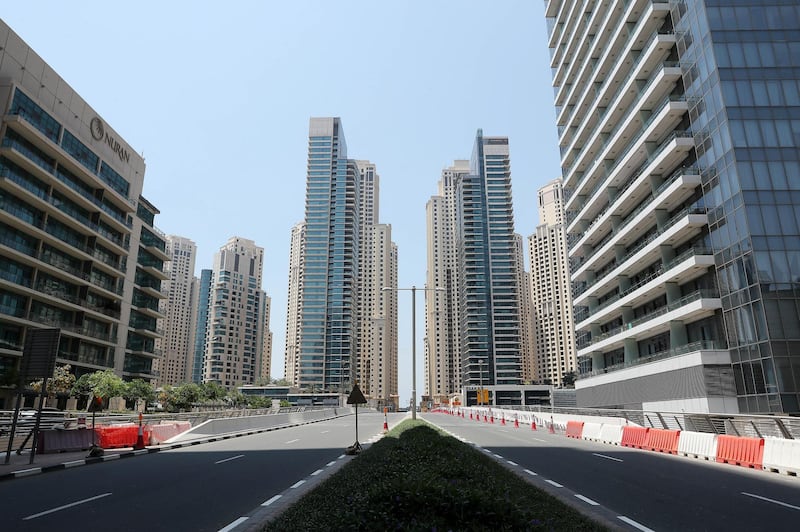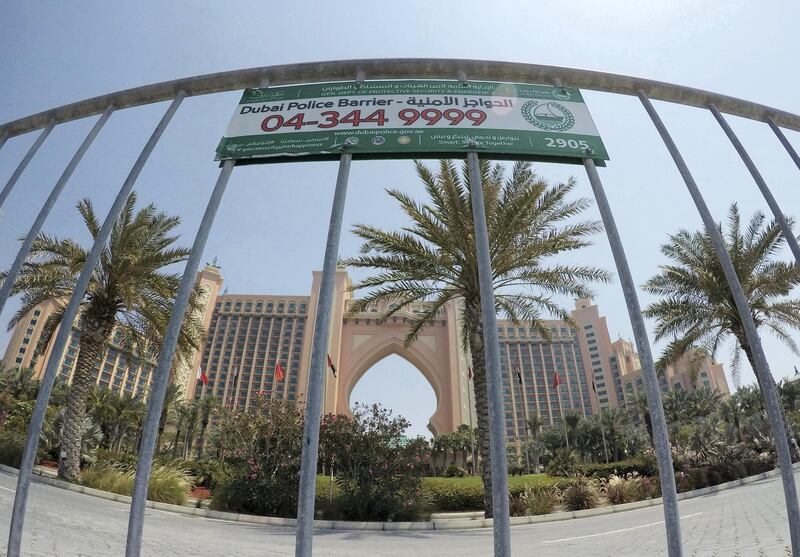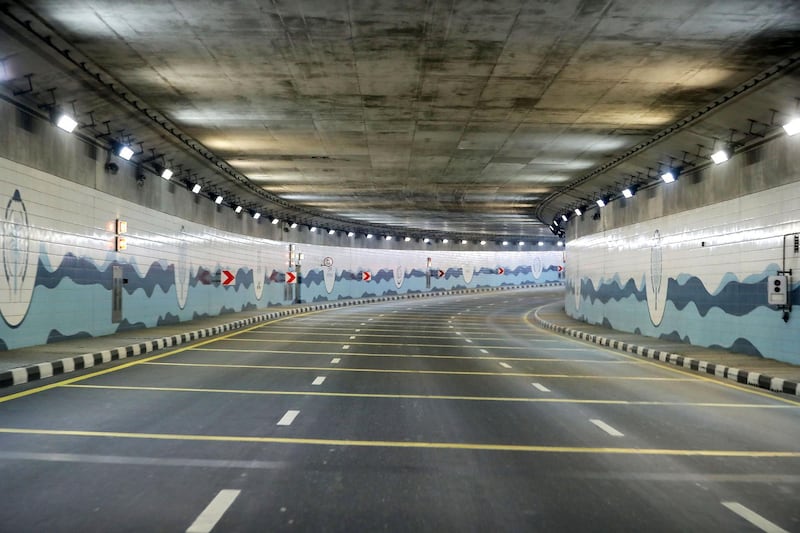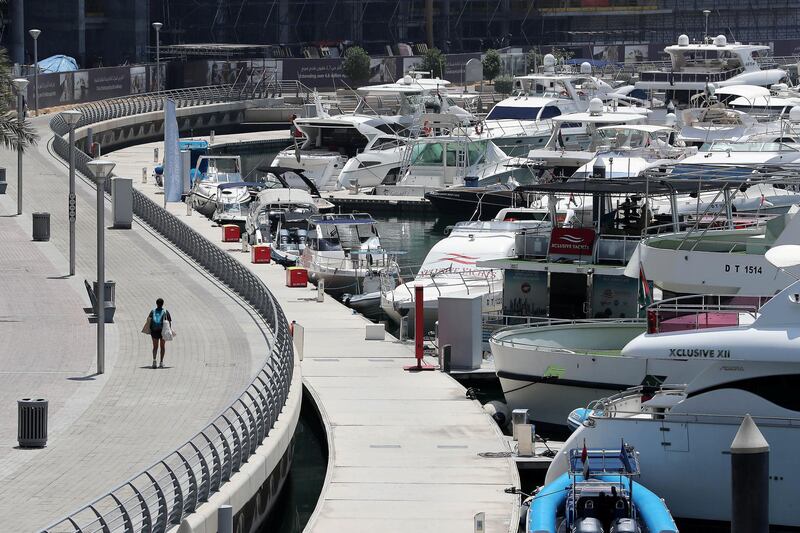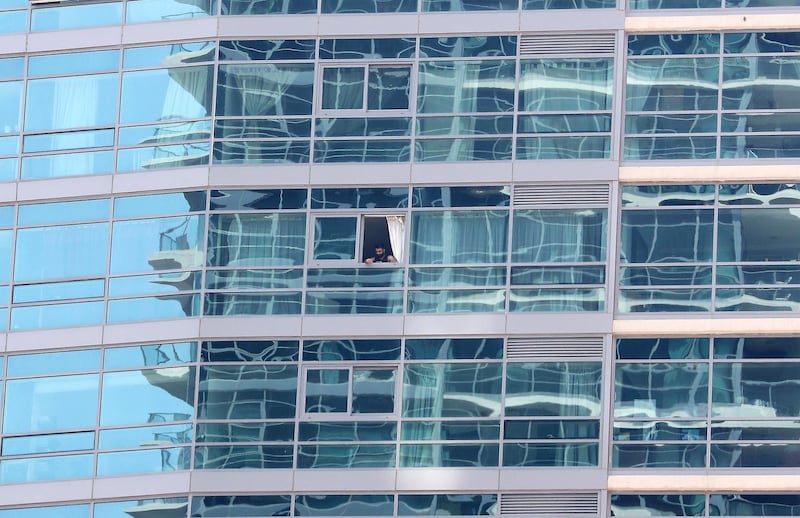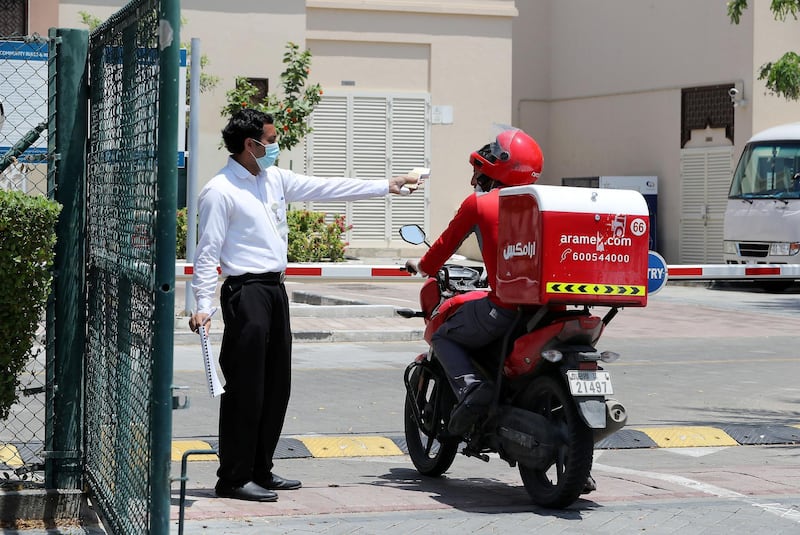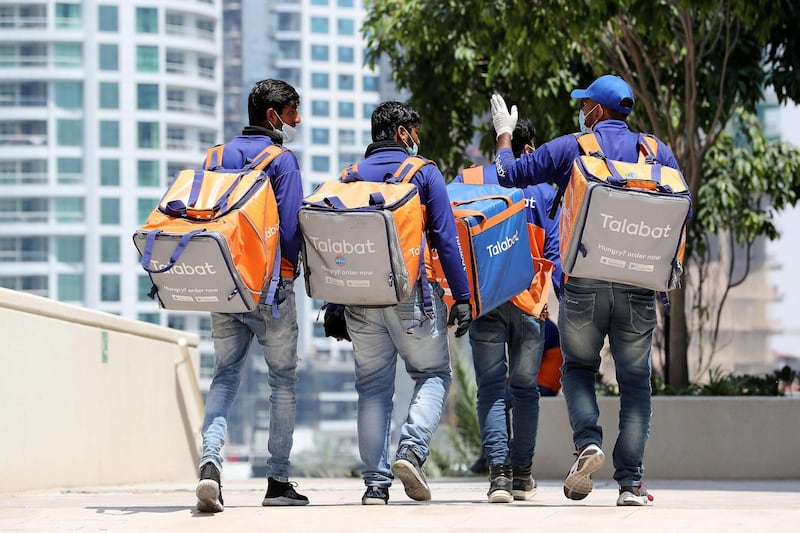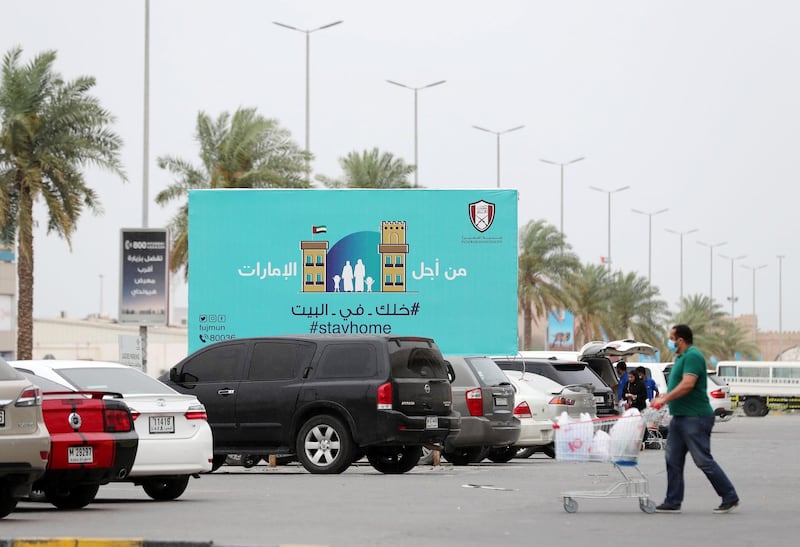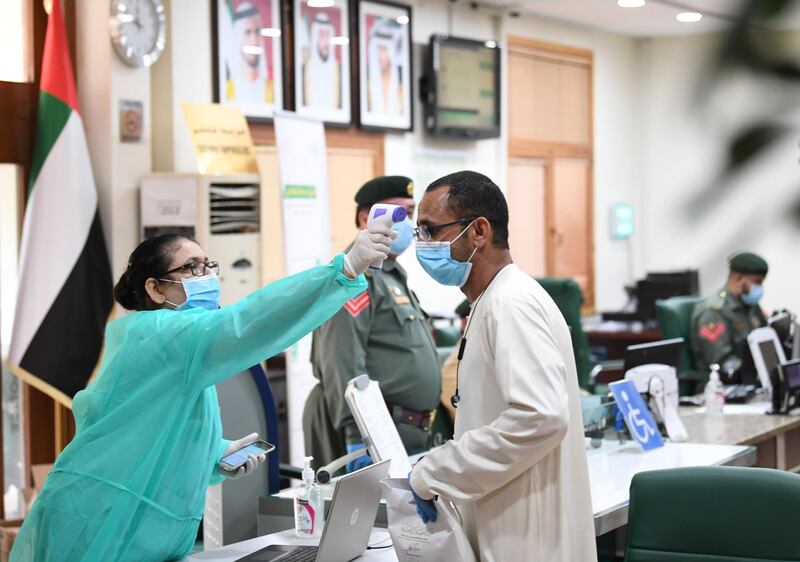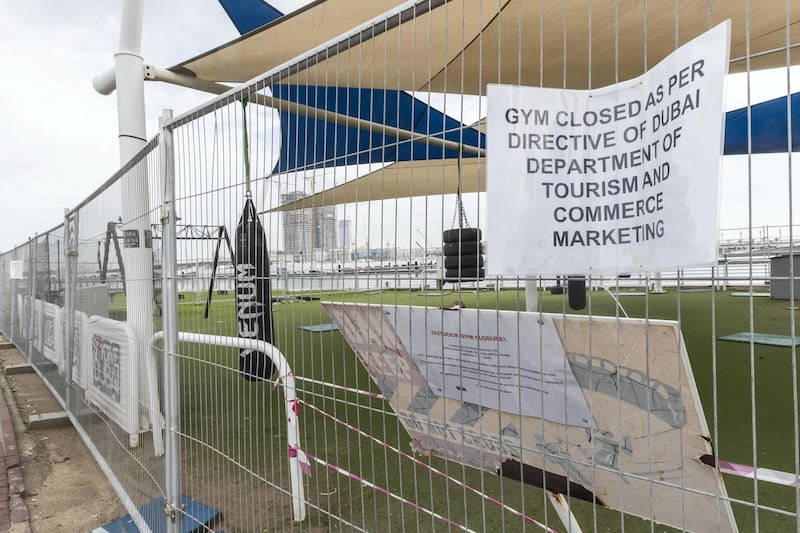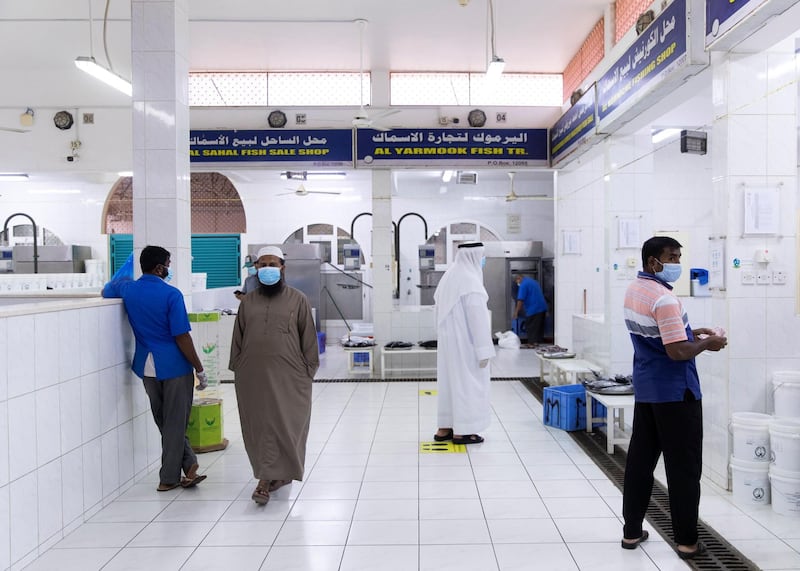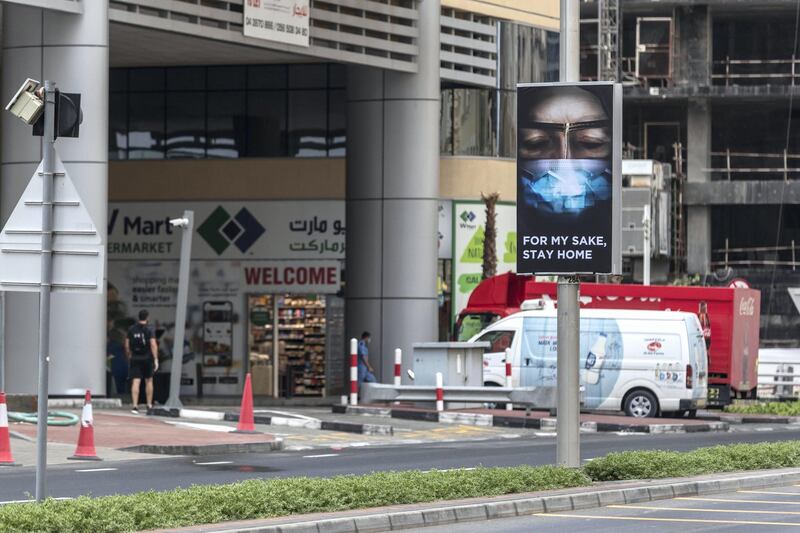Latest: Dubai lifts all permit restrictions to allow shopping and exercise
Shoppers would be allowed into Dubai's malls for three hours, provided they wear a mask and keep their distance, according to new plans from the government.
Children aged between three to 12 and people over 60 would not be permitted, Dubai Economy said in a briefing note on Wednesday.
Shopping centres must also limit the number of people entering to no more than 30 per cent of their total capacity.
These are part of a comprehensive set of guidelines issued to businesses, which have been told to expect an announcement “shortly” on when they can reopen. Under the plans, temperature checks at entrances would be mandatory.
Dubai eases Covid-19 restrictions
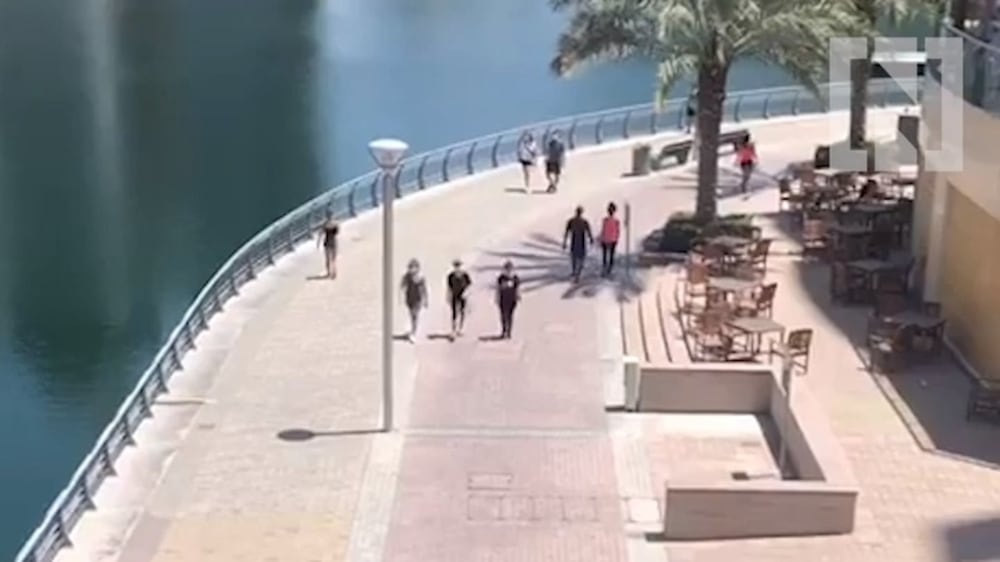
In Abu Dhabi, officials said they were looking at "a staggered series of reopenings across key sectors... to support local retailers and businesses" on Wednesday night.
In Dubai, shops and restaurants must hang a red tag at the front door indicating the maximum number of customers allowed inside. The number would be determined based on a calculation of a 1.2m radius per customer.
Social distancing must be followed at all times among people who are not family members.
All entertainment and tourist attractions would remain closed to prevent crowding, while restaurants must limit customers to 30 per cent of their capacity, with seats and tables placed at least two metres apart.
Toilets must be cleaned after each use, while all items tried on must be sanitised afterwards.
There would be separate entry and exit doors, while three quarters of the parking areas will be shut and visits will be limited to three hours.
There must also be a dedicated area on site to isolate positive cases under the plans.
These measures were listed as part of the "first phase" of easing restrictions on movement. It is unclear when they will come into force or how long phase one will last.
The briefing note covers a range of areas with guidelines on restarting the economy and included precautions to be taken during Ramadan, which is expected to begin on Friday.
During the holy month, limited social gatherings would also be allowed, provided they did not exceed 10 people.
However, social distancing guidelines should be followed.
And it was "highly advised that gatherings are few and are restricted to extended family members or very close friends" during suhoor.
It was also not advised to share food within families living in different houses.
The guidelines also covered domestic workers, who should be instructed against meeting with people outside their households, and accepting food from an unknown origin.
Anyone employed to work inside the home should receive personal protective equipment when dealing with individuals outside the household, as well as instructions on how to handle deliveries, such as wiping the outside of packages.
"It is advisable to reduce household movement to the minimum and arrange for them to stay in the family home instead of their accommodation in case of taking care of elderly and infants," the note said.
The briefing note issued to businesses also included instructions for offices, construction companies and the manufacturing sector, in addition to a blueprint on when and how public transport would resume.
Offices must limit staff numbers
Offices must limit the number of employees on their premises to 30 per cent of the total workforce.
And anyone working in an office would wear a mask “at all times” and undergo a temperature check when they enter.
Employees showing signs of illness would be prohibited from attending work, as would people who are at high risk, such as those suffering from chronic conditions.
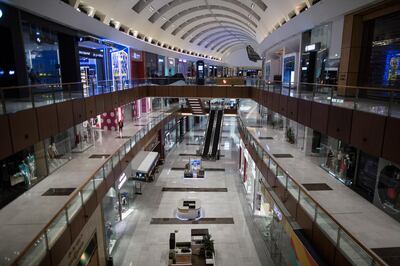
Building and office hours would be limited to eight hours per day and hand sanitisers must be available to staff. Pantries and all common areas would be closed.
Toilets would be sanitised after each use. And all common areas and lifts would be limited to 30 per cent capacity. Meetings would be minimised, with no more than five people taking part and social distancing maintained.
A 2m distance would also be in place in all common areas, elevators, service desks and customer service counters. The guidelines do not stipulate that desks must be kept apart, but many workplaces would likely follow the rule which would be in place in other areas.
Metro to reopen in phases
Authorities planned to reopen the metro within a week under the guidelines.
The red line, which would operate from 7am to 7pm, would reopen first, followed by the green line during the same period. Both lines would be reassessed a week after they open to check demand. And a three-minute wait time would be in place during peak hours.
All stations would open in both lines, except those in restricted areas.
A third phase would extend the opening hours to normal times, under directives from the government.
Buses to run limited services
All buses would begin again within the next two to four weeks under the plans.
They would initially operate 12 hours a day, but service, waiting times and schedules would be adjusted as needed. Social distancing measures would apply, with stickers guiding passengers in the appropriate spacing.
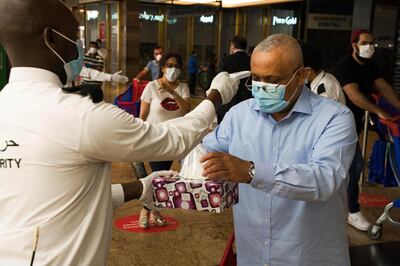
Air-conditioned waiting areas would remain closed to prevent crowding.
Masks would be mandatory for all passengers and drivers and regular sterilisation practices would continue.
Construction sector
All labourers would stay inside the site during the workday, and their temperature must be taken as soon as they disembark buses.
They would all wear protective equipment, including masks, gloves and glasses and rest times would be divided to avoid gatherings. Overcrowding would also be prevented in lifts, hoists, offices and rest areas.
And the authorities would be informed as soon as anyone on site displayed symptoms of the virus.
Tools and materials would be sterilised. During deliveries, drivers would wear protective equipment when leaving the cabin of his truck and all materials would be offloaded by construction workers.
Manufacturing and factories
Sanitisation would be carried out every two to three hours in all common and dining area, with surfaces wiped after each use.
Those working in factories would have their temperatures checked twice a day and those who are ill should not attend.
Their accommodation would be sanitised regularly by an outside company.
Physical distancing measures would be introduced on company accommodation, ensuring no more than one person sat per row.
Day and night shifts would be introduced to ensure factories could run round the clock at 30 per cent capacity.
Abu Dhabi looks to open restaurants and shops
Abu Dhabi officials on Wednesday said they were considering reopening malls soon, as they began a consultation with traders.
A briefing note issued to retailers said working hours would be limited to between noon and 9pm, with pharmacies and foreign exchange outlets permitted to operate between 9am and midnight.
Mall capacity would also be limited to 30 per cent, with masks and gloves mandatory. Anyone with a temperature of more than 38C and people aged over 60 would not be allowed to enter.
Food and beverage outlets would operate at 30 per cent capacity, with a maximum of four people per table and a minimum distance of 2.5m between tables.
There would be separate entrances and exits, and people would be encouraged to bring their own shopping bags and pay by cards, as opposed to cash.
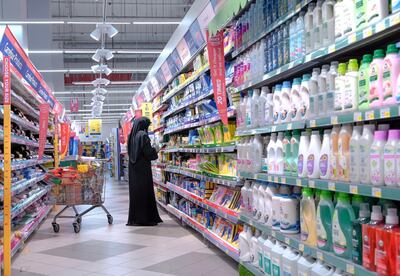
Half of parking spots would be blocked and all surfaces would be sanitised regularly.
Retailers would also be asked to have their employees tested for Covid-19 before they reopen.
And all staff should have their temperatures checked each time they enter the mall and regularly throughout the day thereafter. Masks and gloves would be mandatory.
Stores should be sanitised regularly and refunds and exchanges banned.
Salons would be limited to hair and nails services with social distancing guidelines in place and no waiting areas allowed.
Restaurants would be sanitised daily, with seats and tables cleaned after every customer. And only disposable utensils and takeaway packaging permitted.
The Abu Dhabi Department of Economic Development said it was in talks with mall operators and retailers to "explore options as part of a staggered series of reopenings across key sectors".
It would give the public "more options to purchase products they may need, in addition to e-commerce, and to support local retailers and businesses", the department said.

